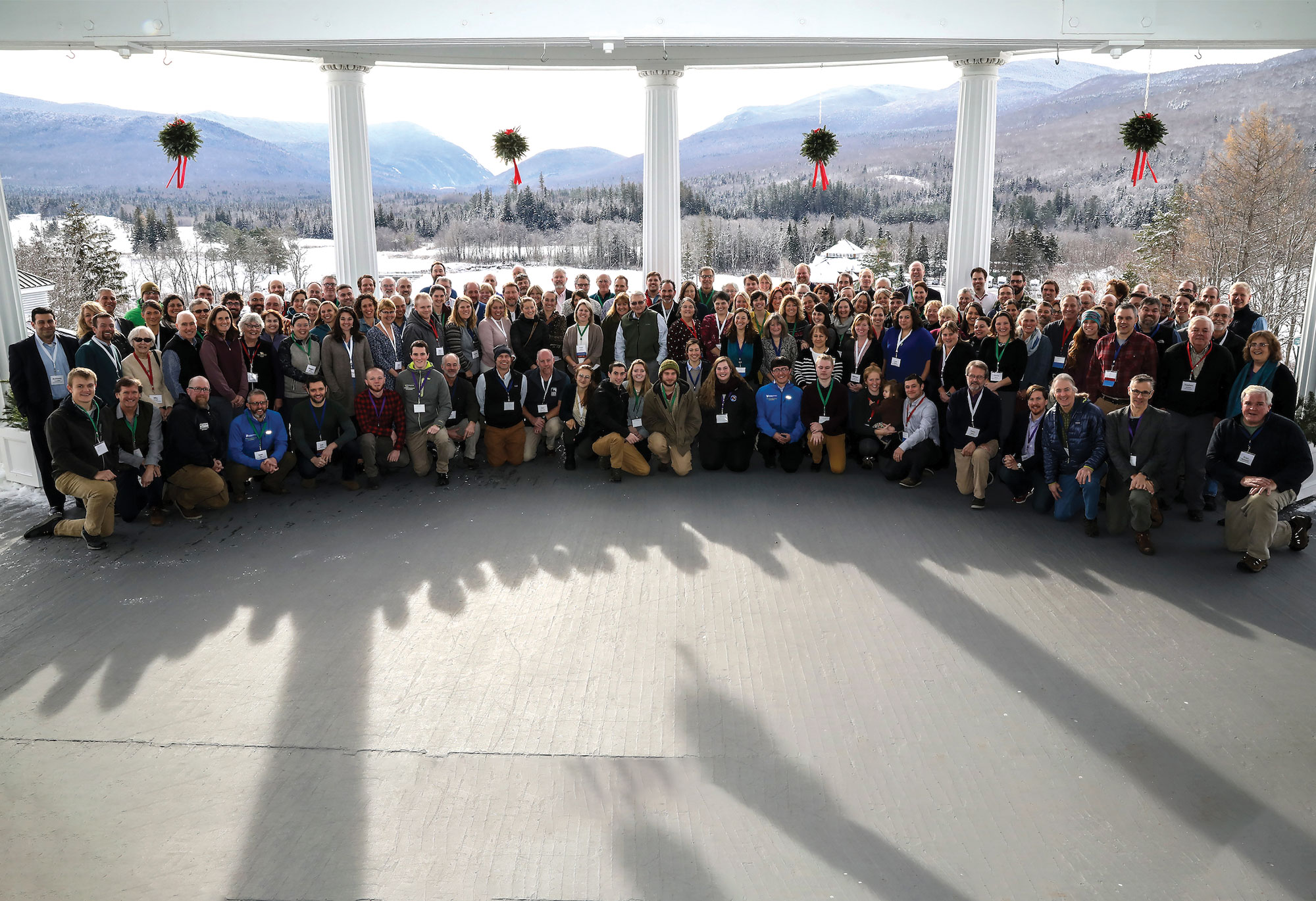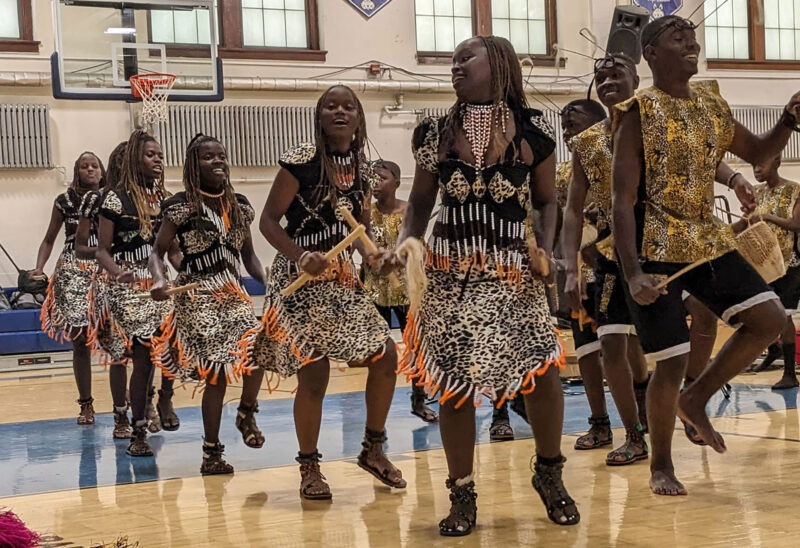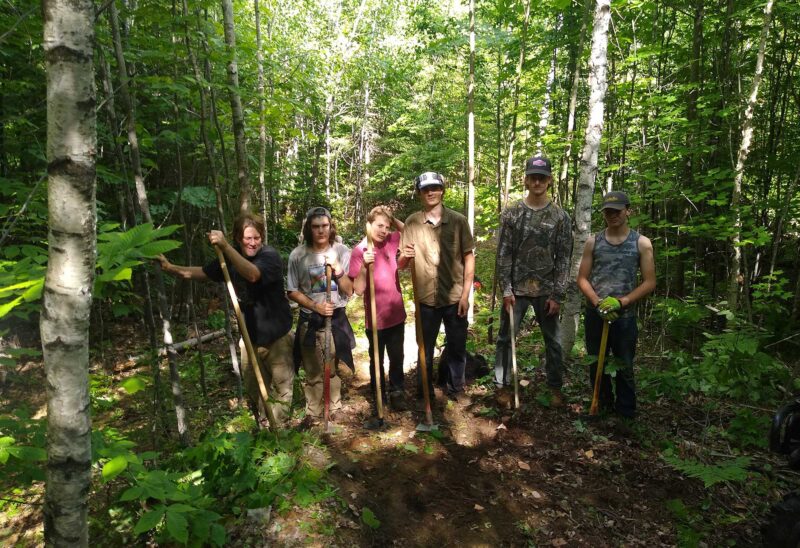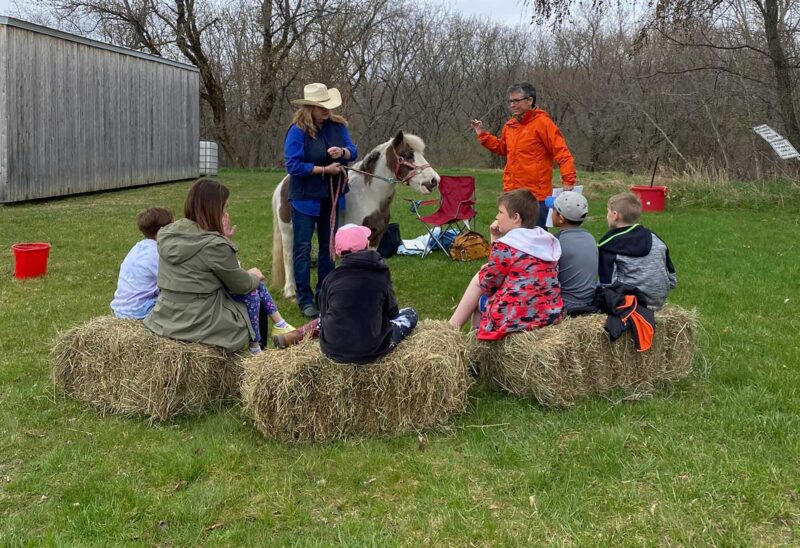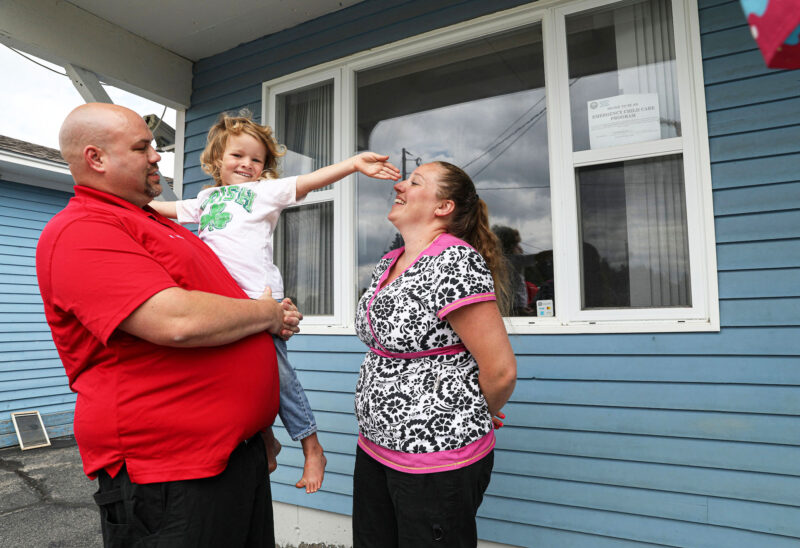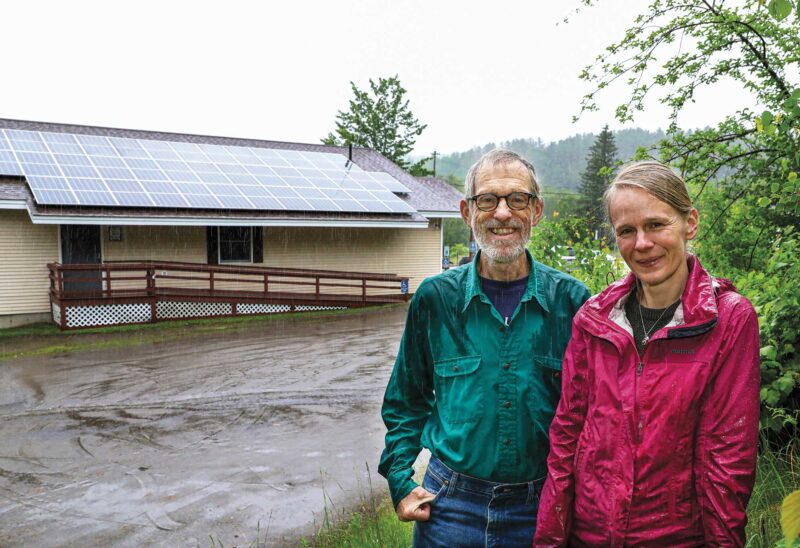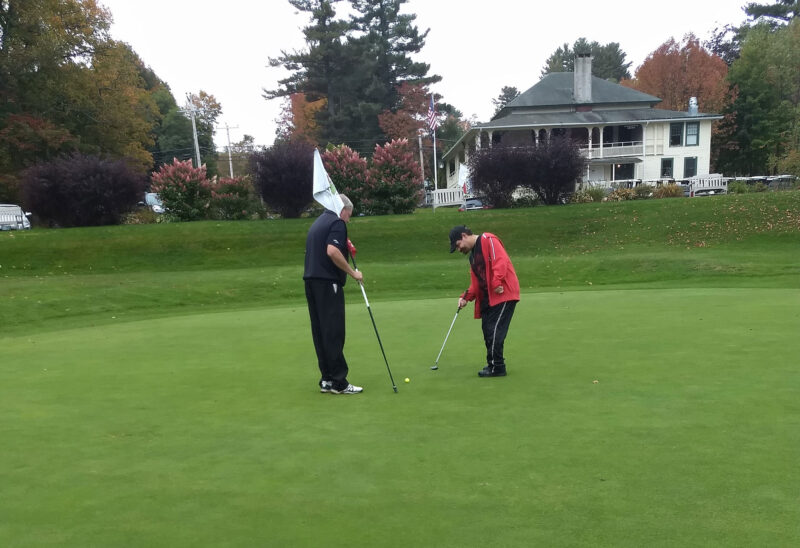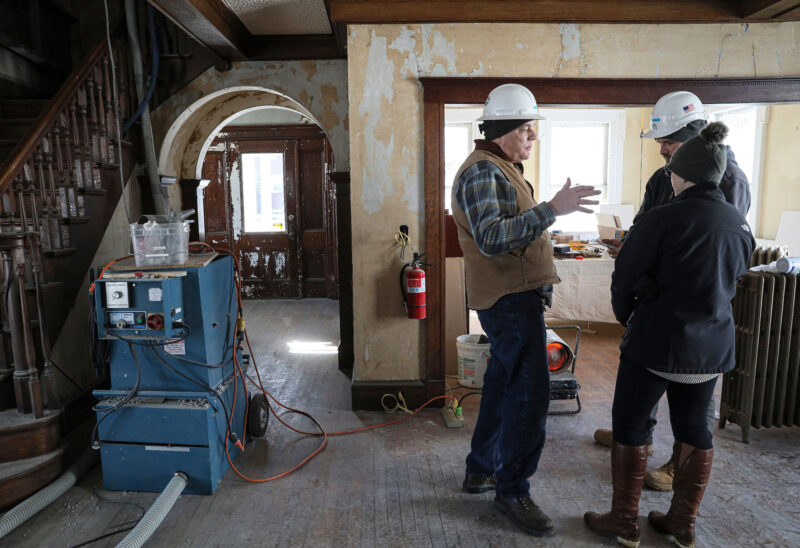It’s 5:45 a.m. and I’m getting a coffee in the main lobby of the Mount Washington Hotel. It’s still dark out. Once in a while, I catch a glimpse of whirling snow in the lights outside. That’s how I can tell that it’s windy in Crawford Notch this morning. I turn when I hear “clump, clump, clump” coming down the carpeted staircase.
Four pre-dawn “walkers” have arrived and are bundled up – heavy boots, woolen hats, thick gloves, down coats – and ready to head out into the snowy darkness. I send them on their way with a map and a reminder that breakfast starts at 7 a.m.
These intrepid pre-dawn walkers are all attendees of the Northern Forest Regional Symposium. This group of nonprofit leaders, federal government officials, ATV (all-terrain vehicle) club presidents, state agency reps, business people and “trail dogs” (those who build and maintain trails) all have at least one thing in common: they care deeply about the Northern Forest region and outdoor recreation opportunities, many of which lie just outside the front door.
Ever since I have been a member of the Tillotson team, it has been my privilege to support, and this year coordinate, symposia focused on opportunities for the North Country and broader region. Past gatherings have brought together leaders on issues from early childhood education to broadband cable access to community economic development. This initiative of the Neil and Louise Tillotson Fund of the New Hampshire Charitable Foundation – in partnership with the Northern Forest Center and the Northern Regional Border Commission – has a history of helping leaders build relationships, sparking cross-sector collaborations for community solutions, and helping to leverage state and federal resources for important efforts in the region.
We are all-hands-on-deck for this, because we believe firmly in the power of bringing people together to work toward shared solutions for our communities.
For three days in mid-November, 175 outdoor recreation leaders from Maine, New Hampshire, Vermont and New York came together to strategize on next steps for the outdoor recreation industry across the region. Workshops and conversations ranged from destination-development strategies to improving employment and workforce opportunities to resolving tensions among different groups of trail-users.
Rural communities nationwide are recognizing that this industry may hold some of the answers to reversing the economic and social trends that have plagued rural communities for decades. As North Country paper mills closed, workers and their families left the region in ever-increasing numbers, leaving behind empty streets and abandoned storefronts. Today, we are seeing exciting new potential in the explosive growth in outdoor recreation.
Unlike traditional tourism, which emphasizes sightseeing and getting away, the outdoor recreation industry places the emphasis on action and activity in nature for visitors and locals. This new tourism path builds on the region’s solid reputation for skiing and hiking activities and the growing popularity of ATVs, fat bikes, kayaks and rock climbing. And it recognizes that businesses like coffee houses, breweries and bistros that help to build community vitality and connection and are an important part of the draw for locals and tourists alike.
Participants reflected a new generation of leadership which values connectivity and collaboration. There were many take-aways and next steps for participants from each of the four states to work on, as well as new partnerships and policy ideas (and a snowy drive home for many.) We look forward to seeing the results of new collaborations, ideas and innovations for the outdoor recreation industry in the Northern Forest region.

